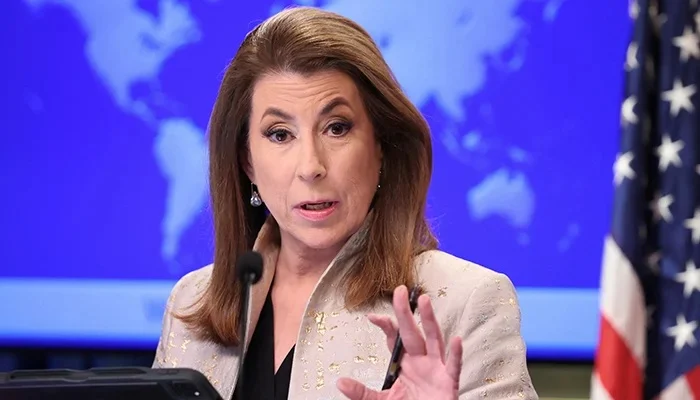The United States has long played a critical role in Southeast Asian stability, particularly during periods of heightened tension between Pakistan and India. Recently, State Department spokeswoman Tammy Bruce highlighted Washington’s decisive efforts in preventing a conflict from escalating into a catastrophe. Her remarks shed light on the mechanisms and diplomatic strategies employed by the US to steer both nations away from the brink, while emphasizing ongoing cooperation on security and counterterrorism.
Swift Diplomatic Intervention During Crisis
Speaking at a State Department press briefing, Tammy Bruce recounted the intense atmosphere during the recent hostilities between Pakistan and India. She described how the US leadership responded with urgency as the situation threatened to spiral out of control. According to Bruce, immediate action was taken by top officials—including the President, Vice President, and Secretary of State—to address the unfolding crisis.
Bruce shared that in the critical days following the initial escalation, US leaders maintained constant contact with both Islamabad and New Delhi. The State Department facilitated direct lines of communication, working tirelessly to halt further attacks and bring both parties to the negotiating table. This rapid response, she noted, was instrumental in preventing a conflict that could have had dire consequences for the region and beyond.
Recognizing Diplomatic Achievements
Tammy Bruce expressed pride in the US intervention, calling it a testament to the skill and commitment of American diplomats. She highlighted the efforts of Secretary Rubio and Vice President Vance, alongside the broader diplomatic team, in successfully navigating the crisis. Their engagement not only helped avert immediate danger but also laid the groundwork for sustained dialogue and cooperation between Pakistan and India.
Bruce emphasized that the success of these diplomatic endeavors reflects the unique ability of the US administration to engage constructively with diverse international actors. She suggested that having leadership capable of open dialogue with all parties is crucial in bridging differences and fostering stability, especially in volatile situations.
Positive Relations and Commitment to Regional Stability
According to Bruce, Washington’s relationships with both Islamabad and New Delhi continue to be positive. She stressed that maintaining strong ties with each nation is a cornerstone of US foreign policy in South Asia. This balanced approach—and the ability to communicate effectively with both sides—allows the US to play a mediating role during times of tension and contribute to lasting peace.
Bruce also underscored ongoing cooperation between the United States and Pakistan, particularly in the realm of counterterrorism. She pointed to the US-Pakistan Counterterrorism Dialogue as a key example of this partnership, highlighting the shared commitment to combating terrorism in all its forms.
Strengthening Counterterrorism Cooperation
On Tuesday, Pakistan and the US reiterated their joint resolve to address terrorism during the latest round of the Pakistan-US Counterterrorism Dialogue in Islamabad. The meeting, co-chaired by Pakistan’s Special Secretary for the UN, Nabeel Munir, and the US Department of State’s Acting Coordinator for Counterterrorism, Gregory D LoGerfo, focused on enhancing strategies to counter threats from groups like the Baloch Liberation Army (BLA), Daesh-Khorasan, and Tehreek-e-Taliban Pakistan (TTP).
This renewed commitment came amid recent developments, including the US designation of the BLA and Majeed Brigade as foreign terrorist organizations. Both delegations acknowledged the need for effective measures against terrorist entities that undermine regional and global security. The US also expressed condolences for the victims of recent attacks in Pakistan, reaffirming solidarity in the fight against extremism.
Discussions during the dialogue centered on building robust institutional frameworks and enhancing capabilities to meet evolving security challenges. Particular attention was paid to addressing the risks associated with emerging technologies being exploited for terrorist activities.





